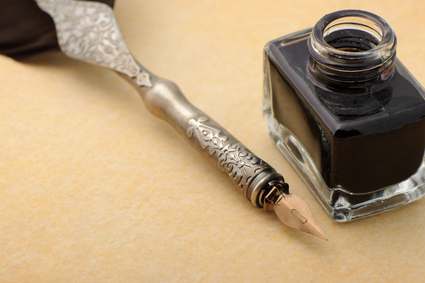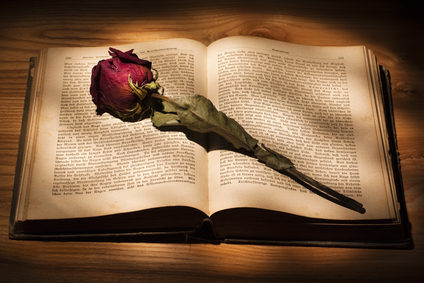How to Begin
If writing poetry is your genre of choice then first it takes the “wanting to do this” that is important. This is the beginning of becoming the next successful and well-known poet. First begin by reading lots of poetry to understand the genre. This will help to steer you to the poetry that you prefer. Secondly, enhance your vocabulary skills and read up on metaphors and similes to really understand their usage. Third, train yourself to use imagery to describe things as this will increase your writing material and skills. And last but not least, try to capture the thought and ideas that come to all of us at the most inopportune times; hence carry a small notepad and pen or a small recorder to capture these moments of inspiration before they are forgotten. At your leisure you will be able to expand on those ideas even further.
As you begin to write, it is important to note that everyone is different and what works for one person may not work for another. You need to find what works best for you. Poetry that moves an audience will have a more powerful meaning when it’s written with passion. Sometimes you may find that you will enhance your poetry by failing at first and then coming back to it at a later time to improve the message. It is about finding the balance with who you are and how you write and letting the audience into your head and philosophy of life. It is about showing that rawness that makes a great writer. Some good starting questions to ask yourself before you begin are:
- Is my poem necessary and can I shed some new light to the many millions of poetry that has been written before me?
- Is the poem pointed and engaging?
- Will people want to read this poem?
- Is my message important?
- Does my message come from inspiration?
Asking these questions will help you to better define your goals and what you want your message to do. The poetry that stirs us to new thoughts and revelations is the one that is most successful. Always get opinions and honest feedback before rolling your poetry out to the masses. Don’t be afraid to get opinions and comments as this will only make your poetry better. Sometimes performing before a live audience will help you see how your poetry is received and then you can fine tune accordingly. Once you ask yourself the above philosophical questions of why you want to write a particular poem you can then move on to the next set of questions for internal and deeper thought.
- Make a list of thoughts, dreams and things that you did over the last week.
- List some of your memorable childhood memories; times that you remember as an “aha” moment.
- Write down questions you would ask if you could but never have.
- Write down questions that you have asked and shouldn’t have asked.
- Jot down what “stirs” you to passion.
- Jot down what “stirs” you to compassion.
- Write down what you think is right with the world and humanity.
- Write down what you think is wrong with the world and humanity.
- Write down the most extreme physical pains that you have experienced.
- Write down the most extreme emotional pains that you have experienced.
As you can see, the above list is to get you thinking about things that really touch your soul and that bring forth your greatest passions. The questions are meant to begin capturing the essence of who you are and what has meaning for you. The questions are not comprehensive by any means but are meant to start you thinking from a deeper place. It is this deeper place of self discovery that will make your poetry full of enthusiasm, zeal and craze to carry your message forward to many audiences.
Definitions
Listed below are some of the more common terms used in poetry; however, there are many more than the list provides. This is just a starting point.
Alliteration: This is when the start of three or more words with the same sound is used. Example (The shiny sparkling shirt).
Assonance: This occurs when two or more vowels sounds are repeated in words that are close to each other. Example (“If I speak when I’m weak”).
Caesura: When the sentence ends or has a natural pause to allow its sense to be made clear or to follow certain rhythms of natural speech in the middle of a line of poetry.
Cliché: An overused word or phrase. Example (“in the nick of time”)
Consonance: This occurs when repeating the final consonant sounds of words. Example (“first and last” or “odds and ends”).
Homonym: A word that has the same spelling and/or pronounced in the same way as another word but has a different meaning. Example (“plain” and “plane”).
Hyperbole: This is when an exaggeration is used for an effect. Example (“The truth was stretched from here to heaven”).
Iambic foot or Iamb: An iamb or an iambic foot has the rhythm bah-BAH. The first syllable is unstressed syllable and then the other one is stressed one. The iamb is the most common kind of foot in English poetry.
Idiom: Using words or language that is natural to a specific person and/or group or it can be an expression whose meaning can’t be deducted from the combined effort of words. Example (“Ya’ll be sorry” or “She is true blue”)
Metaphor: This is when one thing is said or written to represent another. Example (“love is a bed of roses”).
Meter: This is an arranged pattern of rhythm in a line or verse in song or poetry. It is the pattern of beats that is combined to give that musical rhythm.
Onomatopoeia: When a word imitates a sound. Example (“hiss” or “moo” or “buzz”).
Penultimate: Second to last in a series or an order or a succession.
Rhyme: Similarity of sound in word endings such as in poetry. Example (“reach and teach” or “tow and mow”)
Rhythm: This is a regular pattern of beats that is used in a line or verse in song or poetry. In poetry or music the pattern can be formed by using stressed or unstressed syllables.
Simile: Comparing one thing to another by using the word ‘like’ or ‘as.’ Example (“Spring is like the song of bird” or “Jana was as burned out as a candle in a blackout”).
Tercet: A group of three lines of a verse that rhyme with each other or with another group of three lines.
Stanza: This is the number of lines of verse in poetry that form a separate unit within a poem. In the majority of poems, each stanza will have the same number of lines and the same rhythm and rhyme scheme. Poems don’t always follow this pattern but they can and usually do.
Thought Logistics
With some knowledge of the more common definitions and writing techniques used in poetry, using a checklist to make sure you are going in the right direction will be helpful. A quick list to get you started is:
- Begin by deciding which of the five senses you will use to portray your message; will you use touch, sound, image, taste or smell?
- Decide if you will be using metaphors, similes, assonance, onomatopoeia or alliteration.
- Decide on the type of rhymes to be used.
- Decide on how your syllables, words and stanzas will flow.
- Start a new stanza whenever an idea, a rhythm or a rhyme occurs.
- Ask whether your words are creating emotion.
- Evaluate your work for unnecessary things and take out those that are not needed.
- Be uninhibited and write as freely as possible.
- Write about something that is controversial and that stirs sentiment.
- Make sure your writing is telling a story.
- Try writing with different meter rhymes
- Most importantly, write about the things that you are most passionate about as this will show in your writing.






